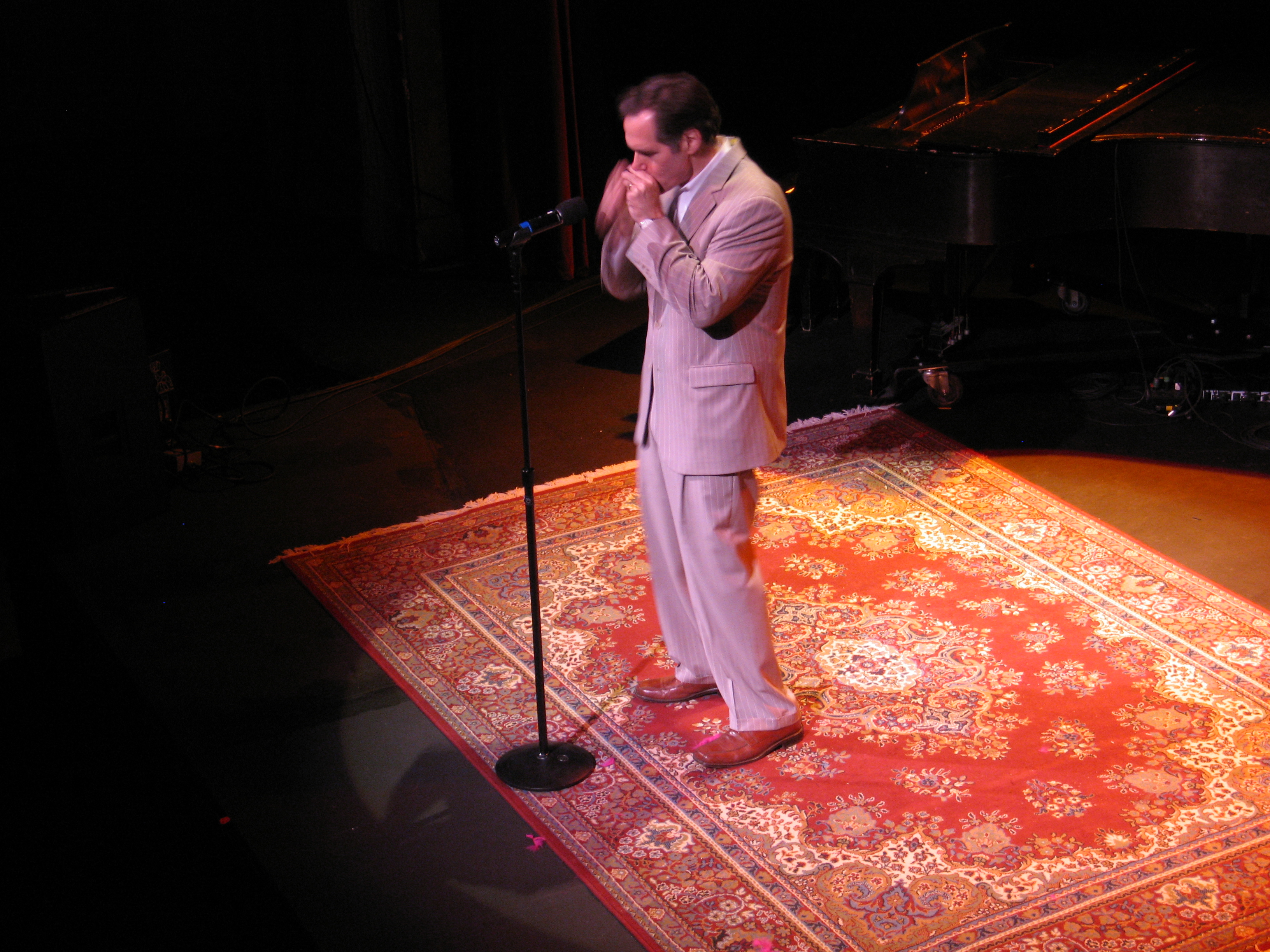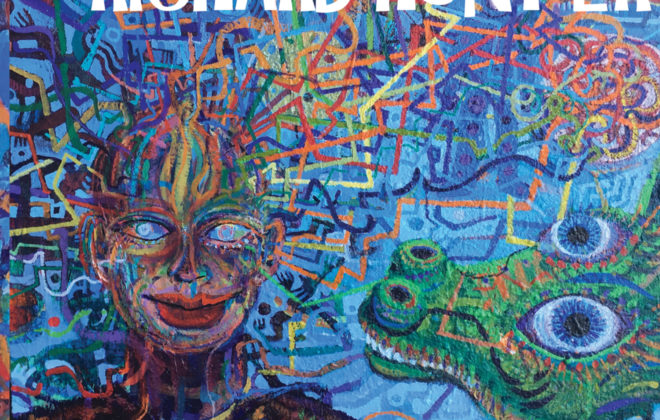
Something for Mayall
There’s a statement regarding my love for John Mayall’s early work with the Bluesbreakers (especially the band that cut "A Hard Road", with Peter Green on guitar) in the liner notes for my CD The Second Act of Free Being. This piece expands on that statement.
When I think about Mayall, it’s not his harp work that I think about most. It’s his great singing, his moody, shifting organ playing, the great sound his bands had, and the very personal chord changes he put into his songs. Mayall’s blues are unique, often darkly beautiful and moving. I hear the choruses and guitar licks from "Top of the Hill" and "Roxanne" (Mayall’s version, not Sting’s: “Roxanne will always be my friend, and that’s the way I keep her love”) in my head all the time. "The Supernatural" is one of the greatest ballads I ever heard, and I have tried to emulate Peter Green’s guitar sound and feel on the harmonica on any number of occasions. My own piece “The Longing” from The Act of Being Free in One Act was inspired by “The Supernatural,” long after I first heard it in my mid-teens.
Mayall knew how to pick his players. That’s a talent in itself, one that many otherwise talented players lack. Mayall was consistently able to identify and recruit the best (English) blues talent of his generation. Notwithstanding the extraordinary talent that surrounded him, Mayall’s bands reflect his sensibilities first and foremost. He used his players effectively to advance his own vision, the mark of a real band leader, and he helped his players grow by doing so.
It’s reasonable to propose that players whose work ends up being heard by lots of people will prove to be influential players. (This is true regardless of whether or not one thinks the work itself is outstanding.) Trent Reznor has stated in interviews that he was heavily influenced in his early years by Kiss, for example. The harmonica solo on the Doobie Brothers’s hit “Slow Train Comin’” has been heard by millions of people, and some of those people tried to play it note-for-note themselves. If "players who have changed harp history” means "players whose records were listened to by lots of other players" then Mayall should definitely be included; "Room to Move" was one of the most-played harmonica records to appear on the radio in the 1960s. Notwithstanding that success, Mayall had the guts to move on. You can hear him admonish a member of the audience who requested “Room to Move” on the live album he made with his Jazz-Blues Fusion band. “Nah, that’s all in the past,” Mayall says, and adds “What did you think, you were going to hear a bunch of old records or something?” Mayall had enough guts to tell you what he was really thinking and feeling in his lyrics, his liner notes (check out “Stone Canyon Blues”), and in every other way.
The term “artist” is drastically overused in our era. The seriousness of his commitment and the quality of his work qualifies Mayall as the real thing. He’s worth hearing more than once.
Related Posts
Leave a Reply
You must be logged in to post a comment.
WHAT’S NEW
Categories
- Audio/Video
- Blog
- Blue Future
- Digitech RP Tricks and Tips
- Discography, CDs, Projects, Info, Notes
- Featured Video
- For the Beginner
- Gallery
- Hunter's Effects
- Hunter's Music
- Huntersounds for Fender Mustang
- Meet the Pros
- More Video
- MPH: Maw/Preston/Hunter
- My Three Big Contributions
- Player's Resources
- Pro Tips & Techniques
- Recommended Artists & Recordings
- Recommended Gear
- Recorded Performances
- Reviews, Interviews, Testimonials
- The Lucky One
- Uncategorized
- Upcoming Performances
- Zoom G3 Tips and Tricks
